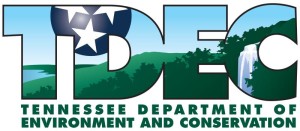Environmentalists want expanded state government powers over businesses

By Chris Butler | Tennessee Watchdog
NASHVILLE — A Knoxville-based environmentalist group wants the Tennessee Department of Environment and Conservation to expand its powers over businesses that operate within the state, regardless of the effect on jobs.
Despite TDEC’s previously reported problems, Renee Hoyos, executive director of the nonprofit Tennessee Clean Water Network, said the agency needs more enforcement power than ever.
Hoyos contacted Tennessee Watchdog after we revealed a TDEC manager complained in a staff email that too many employees in the Water Quality Branch Division engaged in “non-productive, non-work related activities.”
Tennessee Department of Environment and Conservation.
In the email, manager Briton Dotson said employees spend too much time reading the Internet and newspapers and merely walking around when their time is best spent working.
Hoyos is critical of TDEC as it now is, but that’s because she said the agency’s enforcement program has declined 75 percent since 2008.
“Development is probably the No. 1 polluter in Tennessee,” Hoyos said.
“The department would like to have people comply voluntarily, and that doesn’t happen that much. A tougher enforcement action with fines and penalties that are going to pinch is what is needed. But we’re seeing a lot of coddling of industry to encourage them to voluntarily comply.”
State officials, Hoyos said, are perceived as willing to allow companies to pollute Tennessee and look the other way as long as these companies bring jobs to the state.
“The average fine is around $5,000. The state says, ‘Come to Tennessee and pollute.’ That is the cost of doing business. The fines, though, should be taking a chunk out of their company’s profits so they understand that they cannot break the law this way,” Hoyos said.
TDEC spokeswoman Kelly Brockman said the department’s goal is always compliance with environmental regulations — not enforcement.
“It is our preference to work with regulated entities to prevent problems on the front end,” Brockman said.
“This is better for the environment and business. If you look only at the number of enforcement orders the department issued, they did go down in 2008. However, so did the number of permits the department issued. The number of orders may fluctuate from year to year, and have started coming back up in 2014.”
Is it not true the same people who operate these companies have to live in the same environment and breathe the same air they are supposedly trying to pollute?
Don’t they have a personal incentive not to pollute, without expanded government regulations?
“It’s complicated, and there’s no super-simple answer,” Hoyos said.
“We think if the state just paid more attention and enforced more, then this problem would go away.”
The Brownsville-based Teknor Apex went through an extensive and costly TDEC remediation plan two years ago and faced a 60-day intent to sue letter from the TCWN.
Teknor Apex spokesman Rob Lincer said companies such as theirs have personal incentives to keep their communities clean, independent of government regulations.
“I lived in Brownsville. I have family in Brownsville. We’re part of this community,” Lincer said.
“It makes no sense to do anything other than except what you are supposed to do.”
When asked for comment, Justin Owen, president of the free-market Beacon Center of Tennessee, in an email said this about expanding TDEC’s powers:
“This department plays one of the biggest roles regulating Tennessee businesses,” Owen said.
“If its employees have so much free time to socialize and play on the Internet, the department should be shrunk, and taxpayer money returned to our pockets. Tennessee businesses should not have to face unnecessary hurdles just so bureaucrats can justify their positions.”
Dotson’s example wasn’t the first time a person of authority at TDEC admonished employees in a mass email.
Water Resources Division Director Sandra K. Dudley, the Tennessee official most responsible for maintaining the quality of the state’s water and public works systems, reminded her own employees not to flush shoes, ink pens and paper clips down the toilet at work.
TDEC spokeswoman Shannon Ashford said Dudley wrote the email in a lighthearted attempt to discourage what she called “thoughtless actions.”
Contact Christopher Butler at chris@tennesseewatchdog.org. or follow him and submit story ideas on his official Facebook page.
Get regular Tennessee Watchdog updates through our Facebook or Twitter accounts
Like Watchdog.org? Click HERE to get breaking news alerts in YOUR state!
Please, feel free to “steal our stuff”! Just remember to credit Watchdog.org. Find out more








